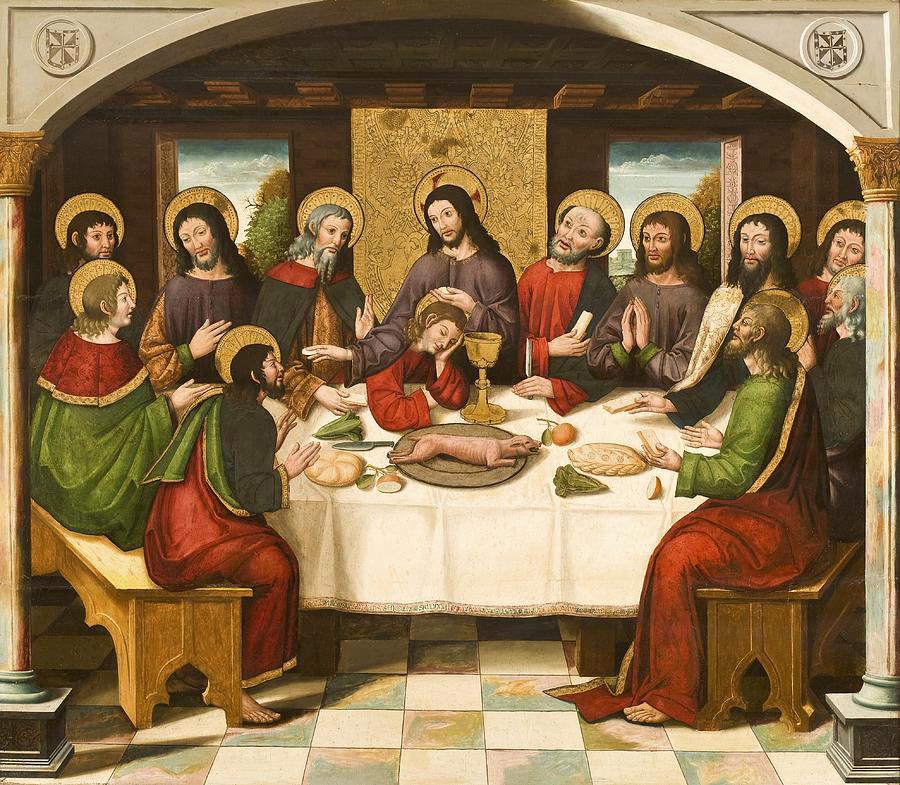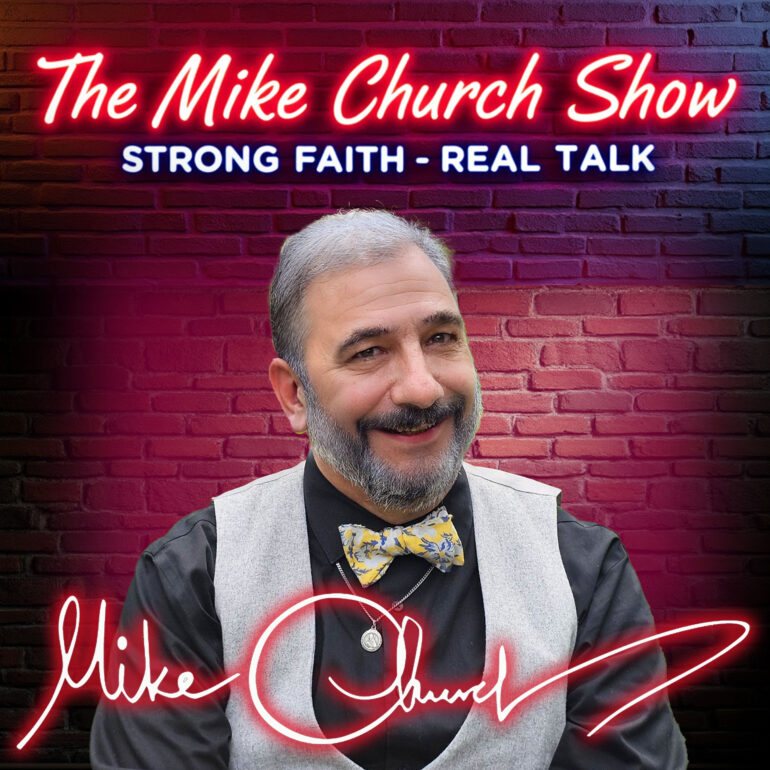Listeners:
Top listeners:
- play_arrow
CRUSADE Channel Previews CRUSADE Preview-Call 844-527-8723 To Subscribe
Is Jesus our ‘Friend’?
One of the more rewarding aspects of being a high-school religion teacher is to be the recipient of good questions, questions that show that the student thinks and cares about the important subject matter he is studying. Some months back, one of my seniors, a bright young lady, asked me a very good question via email. Just yesterday, her younger brother, a freshmen, asked me the same question in class. I asked, and the motivation for both questions was the same, a conversation that had taken place during the summer. Here is the initial question, as I got it from the older sister:
Someone thought it was inappropriate to call Jesus our brother. She thought it seemed to be putting Him on an equal playing ground with us mortals. We [family name] kids were debating on the side that it was ok to say that He is our Brother, since He is the Son of God the Father and the Son of Mary, who is Our Mother.
I emailed her an answer to this and two other religious questions she asked me about, but, as I said, her younger brother asked me essentially the same question in class. So, I’ve pulled out the original email and have embellished it a bit for publication, considering it to be of broader interest.
Jesus is most certainly our Brother by virtue of our Baptism. About those predestined to the life of grace, Saint Paul wrote, “For whom he foreknew, he also predestinated to be made conformable to the image of his Son; that he [Christ] might be the firstborn amongst many brethren” (Rom. 8:29).
To be a Christian is to be a child of God. That is what Jesus is from all eternity, the Son of the Father. Obviously, our divine sonship is by grace and His by nature, yet we are adopted into the very divine life and may truly call Our Lord our Brother just as we can call the First Person of the Trinity “Our Father.”
Jesus is also our “Friend,” and I once wrote something on that. These two ideas are related, since the same divine condescension of the Incarnation that made Jesus our Brother made Him also our Friend.
Saint Paul’s words from Romans are not our only scriptural warrant for this, though it is the verse I chose to cite in my original email on the subject. What follows is a small collection of other relevant scriptural passages, from both the Old and New Testaments, in a list I make no pretense to be exhaustive. The last one is, to me, the most elevated and sublime.
The Old Testament
The first two passages comes from the Book of Wisdom, and is describing “Wisdom,” which in the Hebrew, as in the Latin and the Greek, is a feminine noun, and therefore is a “she”:
For she is an infinite treasure to men! which they that use, become the friends of God, being commended for the gift of discipline. —Wisdom 7:14
And…
And being but one, she can do all things: and remaining in herself the same, she reneweth all things, and through nations conveyeth herself into holy souls, she maketh the friends of God and prophets.” —Wisdom 7:27
The next one comes to us from the Psalms, and it is used in the Roman Church’s traditional liturgy for the feasts of Apostles, which liturgical use is worthy of special consideration when we come to the last New-Testament passage I selected:
But to me thy friends, O God, are made exceedingly honourable: their principality is exceedingly strengthened.” —Psalms 138:17
From the Book of Judith, we have this in Judith’s “discourse to the ancients,” wherein she plucks up the courage of the timorous leaders of Israel:
They must remember how our father Abraham was tempted, and being proved by many tribulations, was made the friend of God. —Judith 8:22
The New Testament
Judith’s reference to Abraham being made God’s friend is not alone in the Bible. There are at least two other mentions of this in the Old Testament (2 Para. 20:7and Isaias 41:8), and one in the New, which is the next passage I’ve selected, coming from Luther’s least favorite book; in fact, from one of Luther’s least favorite passages of that book, it being the section in chapter two that refutes his heresy on the merit of good works:
And the scripture was fulfilled, saying: Abraham believed God, and it was reputed to him to justice, and he was called the friend of God. —James 2:23
From that same book comes a passage that does not directly mention God’s friendship with men, but presents something of the “flip side” of that truth, namely, how friendship with this world (mortal sin) makes us God’s enemies:
Adulterers, know you not that the friendship of this world is the enemy of God? Whosoever therefore will be a friend of this world, becometh an enemy of God. —James 4:4
This passage from the Canonical Epistle of “the Brother of the Lord” would have been a welcome addition to footnote 351 of Amoris Laetitia! It also illustrates the true biblical notion of hatred of the world.
The next utterance is one of the verba Verbi (“words of the Word”), in other terminology, an utterance of Our Lord Jesus Christ Himself. Note how the critical passage is an apparent obiter dictum, something said, “by the way,” and incidentally:
And I say to you, my friends: Be not afraid of them who kill the body, and after that have no more that they can do. —Luke 12:4
And now for what I consider the most sublime of all the utterances collected here, another verba Verbi. It comes from the Eagle-eyed Saint John, in the supernal discourse after the Last Supper. The words are those spoken by Jesus to His Apostles, whom He has just made priests and bishops, and who for the very first time fed with the Bread of Life, his own Sacred Flesh and Precious Blood. These circumstance, and the additional one of His soon going to begin his Passion with the Agony and Arrest, give the words a certain weight and intensity they might not otherwise have for us. They are worth pondering at Mass, after we have received Holy Communion:
This is my commandment, that you love one another, as I have loved you. Greater love than this no man hath, that a man lay down his life for his friends. You are my friends, if you do the things that I command you. I will not now call you servants: for the servant knoweth not what his lord doth. But I have called you friends: because all things whatsoever I have heard of my Father, I have made known to you. —John 15:12-15
Remember our reference to Psalm 138:17 above, and how that verse is used liturgically in the Feasts of Apostles? The Apostles are, in a particular way, those friends of God who “are made exceedingly honourable: their principality is exceedingly strengthened.”
But we, too, who feed on the Bread of Life are also elevated to the sublime dignity of God’s friendship, if — and note the if — we do the things that He commands us. Let us treasure this friendship, cling to it, and not lose it for anything in this world.
Written by: Brother Andre Marie
Similar posts
Copyright BlackHat Studios 2024 dba The CRUSADE Channel, All Rights Reserved





Post comments (0)